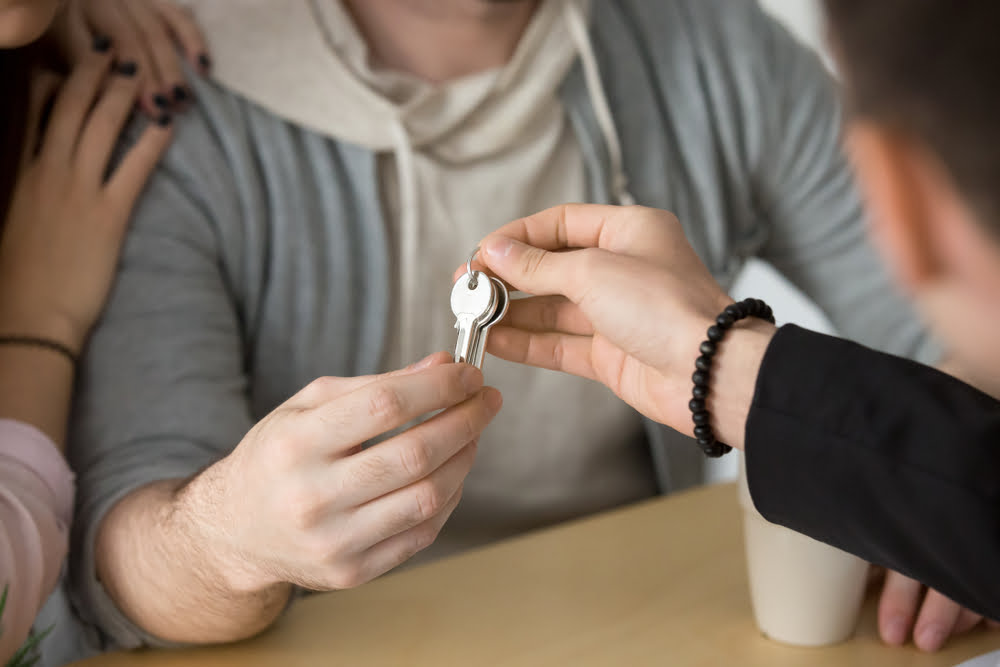Make sure you understand the two types of home ownership and decide which is right for you before you start the process of buying a property.
Buying your first property can be an exciting time and buying with a partner can offer several benefits. It will enable you to save for a larger deposit, meaning you’ll be able to afford a bigger property and can share the costs between you.
It’s important to be aware that you’ll both be liable for mortgage payments, so if your partner can’t pay their half of the mortgage, you would be liable for the entire amount and any missed payments would affect your credit rating.
When you buy a property with someone else, you will need to consider beforehand how you would like the arrangement to work. What happens if you are putting in a higher deposit than the other person for instance?
You can own the property either as Joint Tenants or Tenants In Common. In both cases, you still own the property, but the situation is different. You need to decide which type of joint ownership is right for you when you buy a property.
What do the two types of ownership mean?
Joint Tenants (sometimes also known as Beneficial Joint Tenants) means that you have equal rights to the property. Each person owns the whole of the property, i.e. you both have a 100 per cent stake in the property’s value. Neither of you has a specific share. If you sell the property, you are both entitled to half of the sale proceeds regardless of how much you have each put in towards the purchase of the property. It’s important to be aware that you can’t re-mortgage or sell the property unless the other party agrees.
With Joint Tenants, if one person dies, their share of the property will automatically go to the surviving owner. If you have a joint tenancy, you can’t leave the property to someone else in your will. It will automatically transfer to the other joint tenant. This type of ownership tends to suit married couples or those in a long-term relationship who have contributed an equal amount towards the cost of the property.
Separate shares
Tenants in Common means that each person owns a separate share of the property. You can decide how much each share will be. If one person dies, their share of the property will not go to the other owner (unless they have specified this in their will) but to their beneficiaries. You can leave your share to a person of your choice in your will. This type of home ownership would be suitable in circumstances where each person is contributing a different amount towards the property, for instance, if you are putting in a higher deposit than the other person then you would tend to have a bigger share of the property.
Although none of us like to think that we may one day break up with our partner, it is important to consider what would happen if things did go wrong. If you fall out with your partner, it may be difficult to resolve a disagreement as emotions can take over. So if you are contributing significantly more than your partner when you purchase the property, you may want to consider Tenants In Common.
Incidentally, you can change from being Joint Tenants to Tenants In Common and vice versa. If you divorce or separate and want to leave your share of the property to someone else you can do so.
If you own the property as Tenants In Common you can change it to Joint Tenants if you get married and both want to have equal rights to the whole of the property.
To protect your finances, you could also consider having a deed of trust prepared. This is a legal document which can include details of how much money each owner has paid towards the property and what would happen if the relationship ends or if one person is unable to pay their share of the mortgage. It can be a useful document to have drawn up if you are buying with someone else and want to protect yourself financially.
If you are buying a property with someone else, it is always wise to seek advice from a solicitor on what type of arrangement would best suit your situation and also speak to a reputable mortgage broker.
More information on buying your first property
Buying your first property? Download our free guide for first-time buyers.

